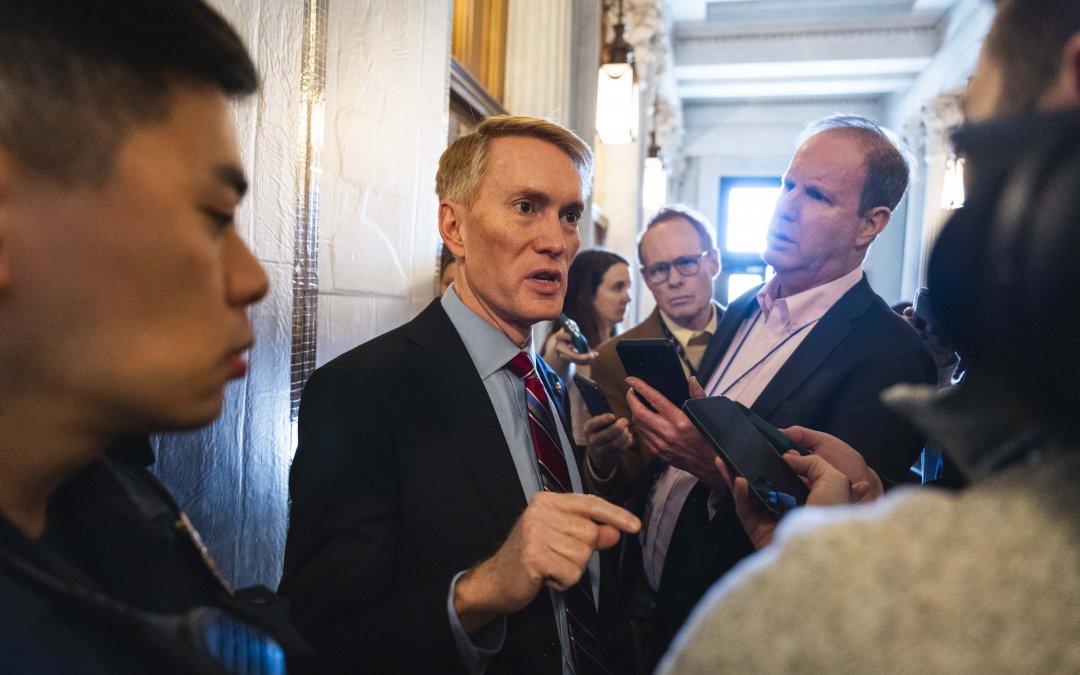WASHINGTON — For weeks Republican lawmakers insisted that any funding for Ukraine must be met with a stricter border policy. Now, with a supplemental security bill within reach, some Republicans are backing away from a deal following former president Donald Trump’s demands to hold off until the presidential election.
“They don’t want the deal to be done because, as President Trump himself has said, they want to use the border issue as a major campaign issue,” said Angela Stent, a foreign policy expert and senior non-resident Fellow at the Brookings Institution. “Unfortunately, these two things are tied together…not coming to an agreement on the border also torpedoes assistance for Ukraine.”
Ukraine relies heavily on U.S. support for its war efforts. Since the Russian invasion in 2022, the U.S. has provided $44.2 billion in military assistance. The proposed bill would provide an additional $106 billion in aid to Ukraine, Israel and Taiwan.
To be sure, stalling until after the election would yield serious repercussions, especially if Trump wins the election. The former president has vowed never to help Europe and has a historically differential attitude toward Russia.
“If Trump is elected president, then I think all bets are off,” said Stent. “The assumption is that there certainly won’t be any more assistance for Ukraine.”
Michael David-Fox, a historian of Russia and the Soviet Union at Georgetown University, said a Ukrainian defeat at the hands of Russia would send a message to the rest of the world that U.S. foreign policy is in disarray.
“I think that would resonate not only in China but in many parts of the world.”
David-Fox emphasized that passing a supplemental bill would not only help U.S. allies in their defense efforts but would also send a message to Russia and China, whose sights are set on expansion.
“When I was growing up, I saw the United States of America as a country fighting for independence, democracy and freedom, not just for the U.S, but worldwide,” said Maryna Bayduk, the Executive Director and President of United Help Ukraine.
In response to the attack, Bayduk, a Kyiv native, joined United Help Ukraine to advocate for her home country. She now helps facilitate the nonprofit organization’s fundraising and lobbying efforts and oversees medical and humanitarian aid sent to the country.
She said defending Ukraine against Russia is important to protecting freedom and democracy.
“I see this war as a fight of evil against good,” said Bayduk. “It’s very clear to me which side I’m on, and this is what motivates me to move forward.”
For senators supporting the bill, the urgency to pass funding grows day by day, with negotiators still hopeful that they can facilitate a bipartisan deal.
“Listen, I’m still prophesying on this,” said Sen. James Lankford (R-Okla.) on Thursday after spending the past week defending the bill he helped negotiate. “I’m trying to get it out as fast as we can possibly get it out, there is no one who wants it out faster than me.”
Details of the bill are expected to be released on Friday or Saturday, giving lawmakers the weekend to review the deal.
“How could we not stand for Ukraine right now?” said Sen. Fetterman (D-Pa.) to the Medill News Service. “I mean, one of our closest allies, and even if you’re not even concerned about them, it’s like, here’s an opportunity to break and humiliate Russia, I don’t understand it.”
Bayduk will be closely watching, knowing that the war’s outcome could be hanging in the balance.
“This is one of the moments in history that can change the entire war world easily,” said Bayduk. “We do not want World War Three, I think it’s absolutely essential to vote for the bill.”


